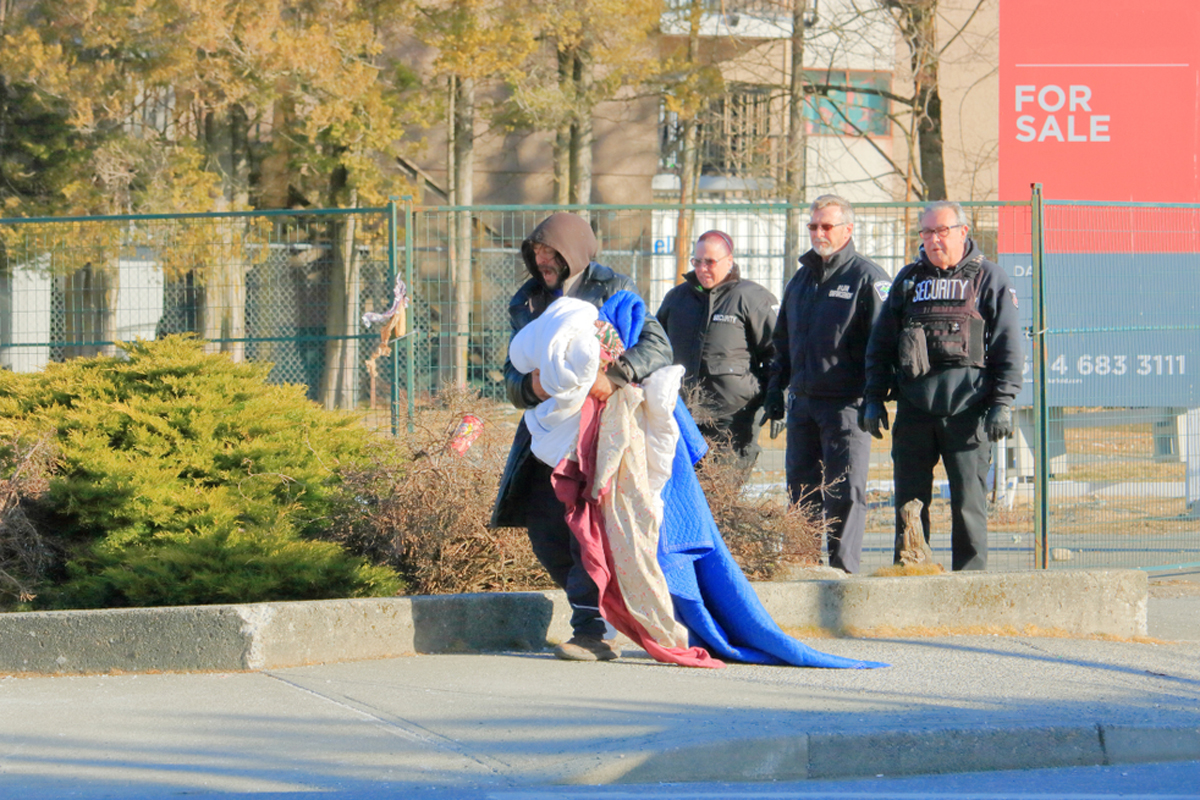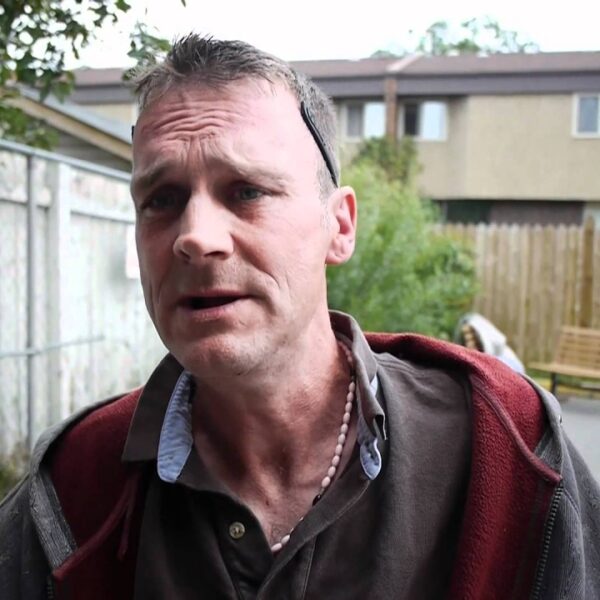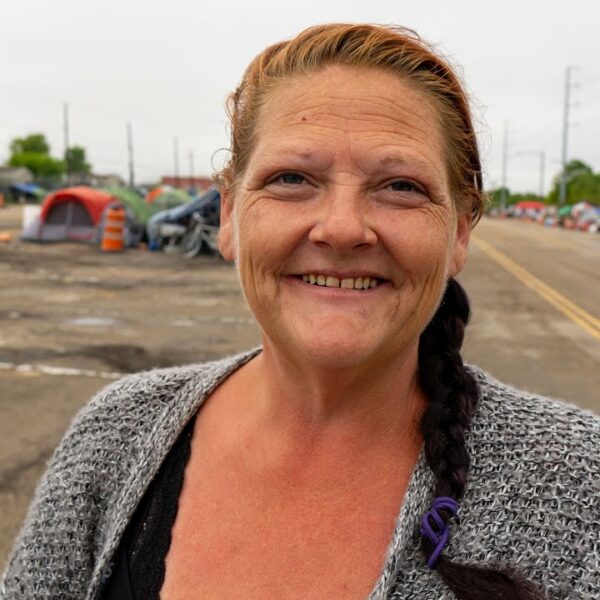‘Sometimes Life Is Harder Than the Streets’
The 30 seconds in the morning where you wake up and forget about all this is the best part of the day. And that sucks.
What she wants to forget is the small detail that she’s about to be evicted. And she’s not alone. More than 100 fellow residents of Oppenheimer Park, Vancouver’s long standing tent city, were served with an eviction notice in August 2019, leaving them with some difficult decisions to make.
Tent cities are on the rise across North America, particularly along the milder West Coast. Homeless encampments have appeal for people living rough. They offer a sense of community, a perceived measure of protection, and not insignificantly, a place to call home. However, tent cities also attract a lot of attention from the housed public and city officials. This unwanted attention has led to an increasing number of tent city residents being evicted and left to find new homes.
Officials Present Many Reasons, Few Solutions
Vancouver police noted that public safety was among their chief concerns when deciding to remove Oppenheimer Park’s tent city. According to the Vancouver Police Department, the homeless camp “is attracting so much violence, drug dealing and gangs that it has become an intolerable crisis.”
Police calls to the park have increased substantially in recent months, correlating with an increase in stabbings and attacks with weapons. Providing numbers to back up these claims, the VPD states that 700 calls to police for service have been made since the beginning of the year. They’ve seized 223 guns in the district where the park is and 476 other weapons.
Oppenheimer Park may be an extreme example of violence seen in tent cities. Other encampments are relatively safe, but are facing less tolerance than in the past. Milwaukee, Wisconsin, is home to a tent city underneath highway I-794. Its 90 residents were served with the following notice on October 4, 2019:

The sole reason cited in this case? “Camping on highways is unlawful.”
Summer 2019 also saw eviction notices handed out at a tent city in Moncton, New Brunswick. Public sentiment was cited as the reason for the city’s decision. City council member Dawn Arnold explained it this way:
“We want everyone in our community to be safe, that is our goal. And I think we need to clean things up.” Significantly Arnold failed to elaborate on what threats to public safety the downtown camp presented.
Campers Remain Skeptical of Housing ‘Solutions’
The best-laid plans of mice and men often go awry, and home planning is no exception. Many campers are hesitant to accept the reassuring sentiments of city officials that all campers will be welcomed into shelters with open arms.
Candace Bryar, quoted at the outset, is aware that BC Housing, a government-run affordable housing organization that operates in Vancouver, has assured the residents they will all get lodging. She’s skeptical. “If something actually goes my way here, I will be shocked.”
Hailey Hachey, a 21-year-old Canadian that spent some time in a recently removed tent city in New Brunswick, says that many people prefer living outdoors to staying in shelters. Why?
“We have authority figure issues. It’s one of the biggest reasons we stay on the streets. There’s no authority.”
While statements like his may sound needlessly cynical (and perhaps slightly anti-establishmentary), they are symptomatic of broken promises and abused trust between the homeless community and authority figures. Michael Fougere, who currently lives in shelter but knows many in the Moncton tent city, shares Hachey’s concerns:
“Where are [the tent city residents] going to go? What kind of help are they going to get? ‘Cause they don’t even have the shelter that they supposedly said they were going to have done up.”
Ryder Patriquin, 29, also living in Moncton, has an idea of where former tent city residents will end up. He was evicted earlier this summer from the Albert Street tent city and has been living in a makeshift shelter ever since, periodically moving to different locations throughout the city. Patriquin thinks other evicted tenants will follow his example:
“I think it’s going to become a problem. People everywhere, the crime rate might go up again, who knows?” He says his door is open. “The spot I have is big enough and welcome for a few people.” He continues: “People have lost their will throughout their life to do anything else other than this. It’s a comfortable, carefree kind of escape from normal day life—as hard as it is. But sometimes life is harder than the streets.”
During a tent city removal in Peterborough, Ontario, housing advocate Rachelle Sauve said she fears the people leaving the park will end up in even less secure places. “I know some people have found shelter in people’s backyards … There’s a few new people in the alleyways.”
She also identifies what she feels is a missing ingredient in many housing talks. “Those who have lived in tent cities and experienced homelessness must be involved in those talks.”
Gaining residents’ perspective might help bridge the gap between perceived housing solutions and tent city dwellers’ realities.













